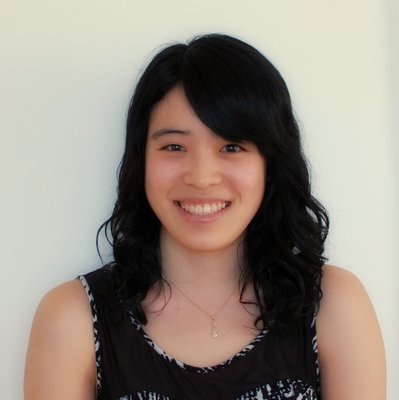
Coming on the heels of its 25th season, Pianofest in the Hamptons isn’t slowing down. This year’s slate of summer concerts in Southampton, East Hampton and Upton draws from the biggest up-and-coming names in classical music today, according to director Paul Schenly. Last week, The Southampton Press caught up with eight of the program’s residents—some of them returning students—just in time for their imminent performances across the East End.
Q: When did you start playing the piano? Why did you start?
A: My mother is an amateur pianist and we have a piano at home. When I was 5, I pestered her—incessantly, she’ll tell you—until she gave me lessons. She thought that I was too young. But I was stubborn and I held out for four or five [lessons] before I got distracted by some other pursuit—soccer? coloring?—at which point my mom wouldn’t let me quit, because, “You don’t quit when it gets hard; you’re only allowed to quit when things are going well.”
Q: What brought you to Pianofest?
A: I came to Pianofest for the first time last summer and it was one of the best things that has yet happened to me. The atmosphere is wonderful. I’m 19 and don’t have a lot of experience, but I think you’d be hard-pressed to find a place capable of fostering this much connection between musicians and musicians, young musicians and teachers, and musicians and audience. I spent a chilly, rainy, Belgian winter [at the Conservatory of Ghent] remembering open windows and the smell of Atlantic breeze and frying sausage as I practiced Rachmaninoff barefoot in the kitchen.
This summer, I’m looking forward to being house manager, which means that in addition to playing and performing and taking lessons, I’ll also foisting culinary experiments upon my poor fellow pianists.
Q: What made you decide to pursue music professionally?
A: At a certain point, one realizes that a love of music becomes one’s life—it seems like a natural evolution rather than a choice.
Q: You released your debut album last year. What did you learn about producing a record versus performing live?
A: Records have more permanence, and so the process is always looking back on what already happened to assess if it was good enough, but trying to re-create the forward momentum of a performance. Many artists are better on stage in front of an audience, as a reactive fabric, but I tried to give everything to this record through 10 years of preparation and living with the repertoire.
When I am at work at the piano, I always imagine that I am not far from the beach in East Hampton. It is a comfort and provides the necessary ease to find the creativity for all my projects.
Q: What’s the most significant thing you’ve learned from your musical experience?
A: I have learned, firsthand, during times of struggle that music can speak to us with unique eloquence at our point of need. When talking with friends going through a rough time, sometimes I’ve felt the limits of my words and have found it a blessing to be able to walk to a piano and share a piece of music with them.
Q: What is your favorite part of performing?
A: When I completely sink into the music and totally forget about the audience, about myself, and everything else. When I levitate into this transcendental world of sound. It doesn’t happen all the time—actually it’s quite rare— but when it happens, there is nothing like it.
Q: Do you have any pre-performance ritual?
A: Yes, but unfortunately I cannot disclose it. Sorry!
Q: How did you prepare for your audition?
A: I have only one secret in preparing for the auditions: practice, practice and practice.
Q: What is the music scene in your hometown and how has that affected your career?
A: I am from Shenzhen, a “newly founded” city in China. The music scene there, in my opinion and observation, is that people are very passionate about music. Particularly the case in piano. I would say that people are more passionate about playing the piano than listening to concerts. In other words, people go to concerts for better knowledge on playing the piano.
Of course, this is an extremely generalized statement, but it applies to my case well. Being in this kind of environment as a kid, I listened to the music, was startled and then decided, “I want to do this,” instead of, “I just want to listen to more.”
Q: What are you preparing for the Pianofest concert series?
A: The pieces I’m performing this summer are all based on the idea of moving forward. They aren’t necessarily all new compositions, but they all possess a quality which I would describe as reflecting on the environment around them and moving forward with that new experience.
Q: How important are summer programs?
A: I find that summer programs are a good motivation to keep working hard, since everyone else is also going through the same experience. It’s also inspiring to hear the differences in everyone’s playing, life stories, thought processes. Without these summer camps, I think I would have kept a narrower view of music and life.
The 26th annual Pianofest in the Hamptons will kick off its concert season on Monday, June 16, from 5:30 to 7 p.m. at the Southampton Cultural Center. Tickets are $20. Seven more Monday evening concerts will be given, from June 23 through August 4, at the Avram Theater of Stony Brook Southampton, all beginning at 5:30 p.m. Wednesday night concerts will held on June 18, July 2 and 16 at 6 p.m. at St. Luke’s Episcopal Church in East Hampton, as well as June 25 and July 30 at noon at Brookhaven National Laboratory in Upton. Additionally, a July 20 benefit concert with Melissa and Michael Errico will be held at the Southampton Historical Museum, For more information, visit pianofest.com.